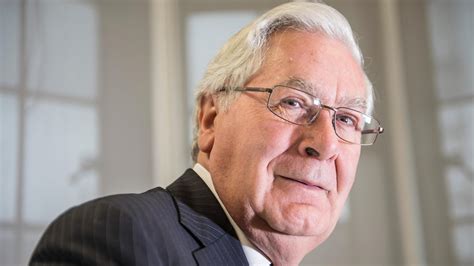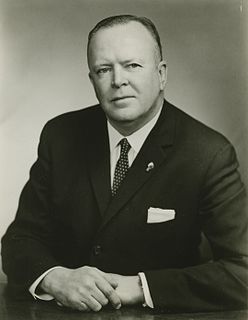A Quote by Jonathan Raymond
Why do I have an issue with banks? They have their greedy fingers in everyone's money. No other industry has the power to deduct a bill or fees directly from your own bank account without so much as a notice.
Related Quotes
There is no reason products and services could not be swapped directly by consumers and producers through a system of direct exchange – essentially a massive barter economy. All it requires is some commonly used unit of account and adequate computing power to make sure all transactions could be settled immediately. People would pay each other electronically, without the payment being routed through anything that we would currently recognize as a bank. Central banks in their present form would no longer exist – nor would money.
The most important thing in your life is your health and your body. You can have all the education and you can have millions of dollars in the bank, but if you've got headaches every day, if you're fat and you are out of shape - what good is your money? Your health account and your bank account, build them both up!
That is simple. In the Colonies we issue our own money. It is called Colonial Scrip. We issue it in proper proportion to the demands of trade and industry to make the products pass easily from the producers to the consumers. In this manner creating for ourselves our own paper money, we control its purchasing power, and we have no interest to pay.
So: if the chronic inflation undergone by Americans, and in almost every other country, is caused by the continuing creation of new money, and if in each country its governmental "Central Bank" (in the United States, the Federal Reserve) is the sole monopoly source and creator of all money, who then is responsible for the blight of inflation? Who except the very institution that is solely empowered to create money, that is, the Fed (and the Bank of England, and the Bank of Italy, and other central banks) itself?
What's the best gamble in the world, right now? Its betting that Deutsche Bank stock is going to go down. Short sellers borrowed money from their banks to place bets that Deutsche Bank stock is going to go down. Now, it's wringing its hands and saying, "Oh the speculators are killing us." But it's Deutsche Bank and the other banks that are providing the money to the speculators to bet on credit.
If all the bank loans were paid, no one could have a bank deposit, and there would not be a dollar of coin or currency in circulation. This is a staggering thought. We are completely dependent on the commercial banks. Someone has to borrow every dollar we have in circulation, cash, or credit. If the banks create ample synthetic money we are prosperous; if not, we starve. We are absolutely without a permanent money system. When one gets a complete grasp of the picture, the tragic absurdity of our hopeless situation is almost incredible - but there it is.
Borrowing money on what's called 'easy terms,' is a one-way ticket to the Poor House. If you think it ain't a Sucker Game, why is your Banker the richest man in your Town? Why is your Bank the biggest and finest building in your Town? Instead of passing Bills to make borrowing easy, if Congress had passed a Bill that no Person could borrow a cent of Money from any other person, they would have gone down in History as committing the greatest bit of Legislation in the World.
Experience, however, shows that neither a state nor a bank ever have [sic] had the unrestricted power of issuing paper money without abusing that power; in all states, therefore, the issue of paper money ought to be under some check and control; and none seems so proper for that purpose as that of subjecting the issuers of paper money to the obligation of paying their notes either in gold coin or bullion.
It is a sobering fact that the prominence of central banks in this century has coincided with a general tendency towards more inflation, not less. [I]f the overriding objective is price stability, we did better with the nineteenth-century gold standard and passive central banks, with currency boards, or even with 'free banking.' The truly unique power of a central bank, after all, is the power to create money, and ultimately the power to create is the power to destroy.




































